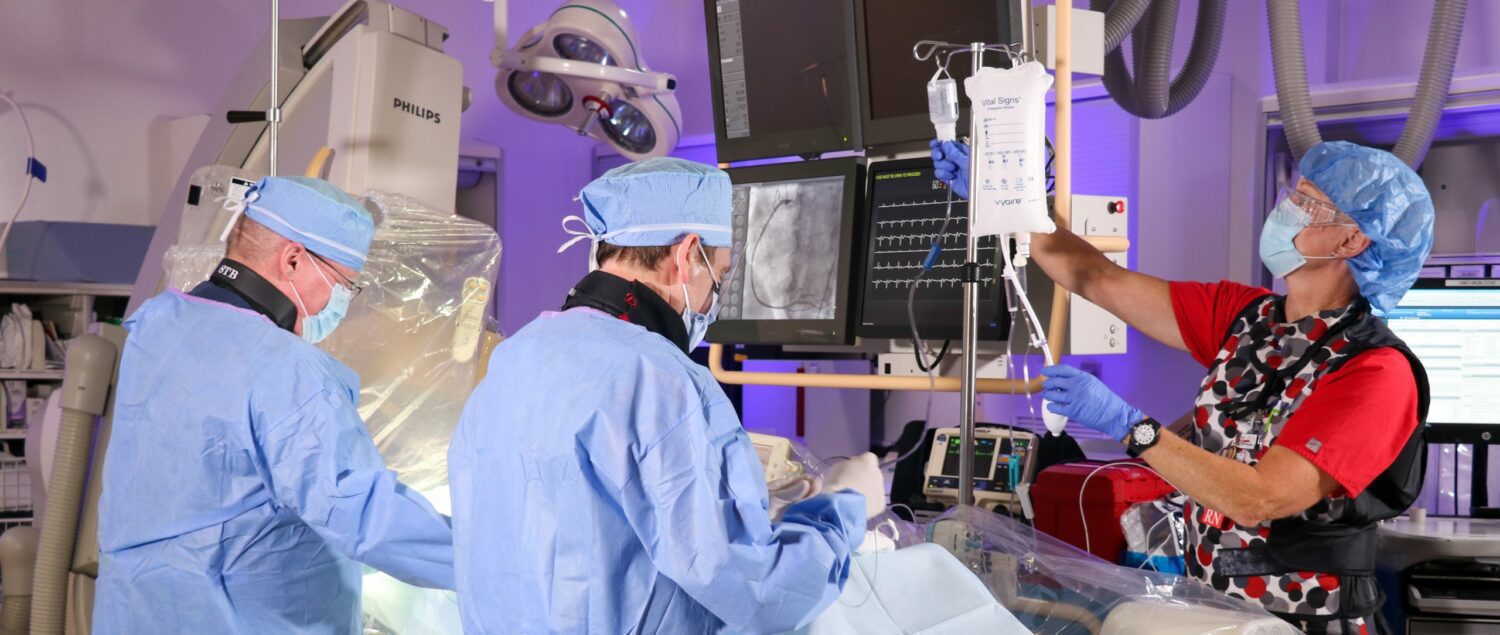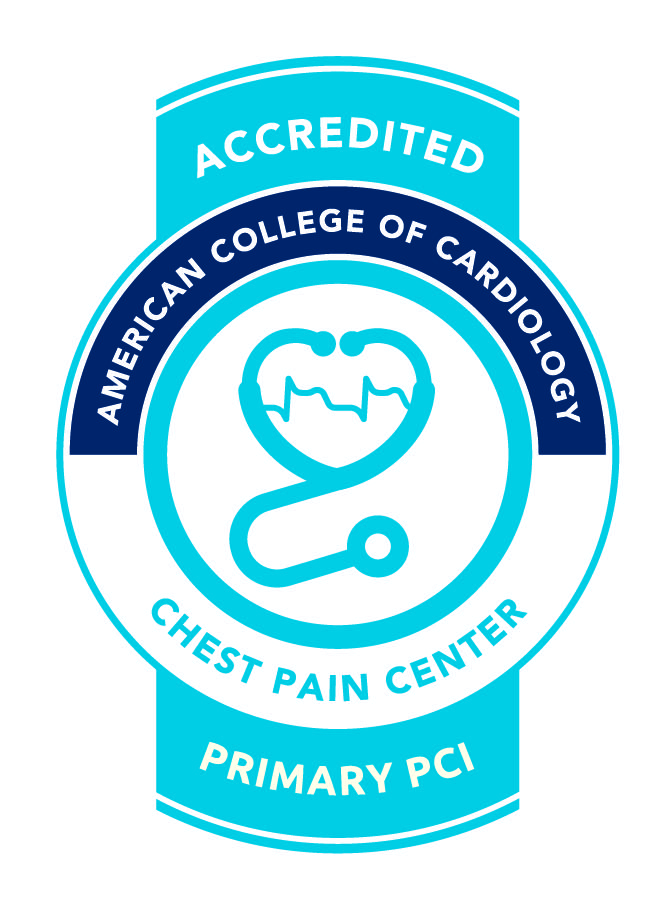CMC Offers Interventional Cardiology Treatment in Our Cardiac Catheterization Lab to Treat Heart & Vascular Conditions
What Is Interventional Cardiology?
Interventional cardiology is a specialized field within cardiology that focuses on diagnosing and treating cardiovascular diseases using minimally invasive procedures. These procedures are performed in our cath lab using catheters (thin, flexible tubes) and other small instruments to diagnose and treat various heart conditions. Unlike traditional open-heart surgery, interventional cardiology procedures are minimally invasive, meaning they require smaller incisions or no incisions at all.
Common Interventional Cardiology Procedures
Our interventional cardiology team will perform all diagnostic testing necessary to create a truly customized care plan to ensure you receive the best possible treatment.
Depending on your specific condition, our interventional cardiologists may recommend one of the following minimally invasive therapies:
- Angioplasty One of the most common interventional cardiology procedures, angioplasty involves inflating a balloon inside a narrowed or blocked artery to widen it and improve blood flow. Often, a stent (a tiny mesh tube) is placed to keep the artery open.
- Stent Placement Stents are used not only in angioplasty but also as standalone treatments. They help maintain blood flow in narrowed or blocked arteries, reducing the risk of future blockages.
Benefits of Interventional Cardiology
Whether you’ve suffered a heart attack or a physician has diagnosed you with coronary artery disease, peripheral vascular disease, or heart valve disease, the first thing on your mind may be “Am I going under the knife?” It’s a natural reaction to conjure mental images of open-heart surgery, but a cardiologist certified in interventional cardiology can often avoid such drama. Noninvasive techniques don’t require intensive medical procedures and drawn-out surgeries. In fact, patients can often undergo treatment without a substantial resting period afterward, and many patients walk away without any impediments to movement after treatment.
Other benefits include:
- Minimally Invasive Interventional cardiology procedures often require small incisions or no incisions at all, leading to faster recovery times, shorter hospital stays, and reduced pain compared to traditional surgery.
- Improved Quality of Life By restoring blood flow to the heart and correcting structural issues, interventional cardiology procedures can significantly improve a patient’s quality of life and reduce symptoms such as chest pain and shortness of breath.
- Lower Complication Rates Minimally invasive techniques are associated with lower complication rates compared to open-heart surgery, making them a safer option for many patients.
- Faster Return to Normal Activities Patients can typically return to their normal activities sooner after interventional cardiology procedures, contributing to an improved overall quality of life.

CMC’s Cardiac Care: Innovative Treatment and Compassionate Care
Interventional cardiology plays a vital role in the management of cardiovascular diseases. Its minimally invasive nature, combined with the continuous advancements in technology, allows our patients to receive effective treatments with less disruption to their lives. If you or a loved one are facing heart-related issues, consult with one of our cardiologists at CMC Cardiac Care to explore the possibilities of interventional cardiology as a treatment option. Your heart health is important, and Conway Medical Center offers innovative solutions to improve it.
Need a cardiac expert? Meet our providers.

Conway Medical Center is an Accredited Chest Pain Center with Primary PCI
The American College of Cardiology has recognized Conway Medical Center for its demonstrated expertise and commitment to treating patients with chest pain. CMC was awarded Chest Pain Center Accreditation with Primary PCI in 2023 based on rigorous onsite evaluation of the staff’s ability to evaluate, diagnose, and treat patients who may be experiencing a heart attack.
